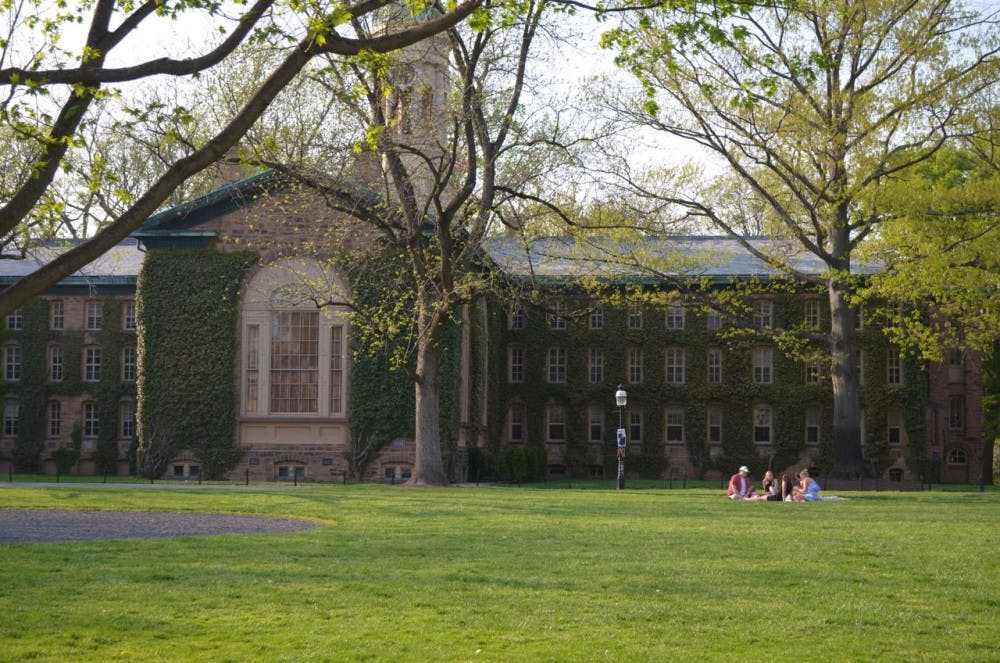So you’re here for your first full year on campus. As a member of the only class to have experienced this, I am here to offer some advice as a somewhat wise senior. Zoom University was challenging for a host of reasons, but an on-campus year offers its own kind of adversity. You may have noticed in the first few weeks how Princeton can pull you in many different directions as you attempt to juggle classes, extracurriculars, and just being a functioning human being. If you approach each of these spheres of campus life with an open mind and a priority on your wellbeing, you’ll be able to weather the first few months of an in-person Princeton.
Let’s start with academics. Princeton courses are hard, regardless of discipline, and if you’re just checking boxes and aiming for grades, you will burn out. In order to avoid such a fate, you have to set your own metrics for success and establish your own goals.
Most importantly, have an open mind about your studies. I was looking at a spreadsheet of prerequisites I made my freshman year, and history, my major, was nowhere to be seen. I didn’t take a history class here until the fall of my sophomore year.
But the classes I took my freshman year helped steer me towards what I love to study — even the classes I didn’t like. Within a class you dislike, there’s often a kernel of something that sparks a new interest. Follow that spark. Over time, you’ll narrow down your interests and find the major that best suits you. Take the classes that draw your interest, not the ones you think you ought to take. You’ll likely stumble into the discipline that really compels you.
The same can apply to your distribution requirements. Maybe you’re a humanities major and the thought of taking a quantitative class gives you panicked flashbacks to high school calculus (like me). Or maybe you’re a scientist who finds a literature class irrelevant to your main focus. Try to tie your distribution class to what interests you and then set your own standard for what success in that class means. Perhaps instead of getting an A, your goal is to learn a new approach to your research interest. For example, to satisfy one of my science requirements, I took a freshman seminar about cognitive bias, which connected to my interests in race and public policy.
The most important piece of advice I have — and the one that took me the longest to learn — is that you should work to get to know your professors. That is the advantage of having in-person classes again — it is much easier to connect with a three-dimensional person than a small Zoom box. If you can, seek small seminar classes where you can differentiate yourself from the anonymity of lecture.
Last semester, I was in a three-person seminar. It was a bit anxiety-inducing at first, but we were able to have more engaging and in-depth discussion than I’ve had in any other classes. If you’re in large classes, attend professors’ office hours, ask about their research, and ask questions during class.
Now for everything that happens outside the classroom. Being on campus means extracurriculars have come back to life. It also means that there are many new potential demands on your time. Perhaps as you walked through the rows at the Involvement Fest in Dillon Gym you were overwhelmed by the sheer number of groups and their enthusiasm. The key to extracurricular life is that the activities you do should be an outlet, not a stressor.

Look for ways to find community with other students. Look for chances to express your non-academic side. Most importantly, don’t spread yourself too thin. A little trial and error is good, but don’t be afraid to scale back to 2-3 clubs as the semester goes on. I’ve found that dedicating myself to a few activities I’m really passionate about is much more fulfilling than being half-checked into several. It will take time to figure out which those key extracurriculars are, but when you feel overwhelmed, take a step back.
A similar approach applies to social life at Princeton. Everyone is thrown from the small pool of their hometowns into the big sea of campus life. You aren’t alone if you feel overwhelmed or like you have more acquaintances than true friends. Like all adjustments to college life, friendships take time and patience. Don’t be afraid to put yourself out there, knowing that everyone else is also feeling things out. At the same time, don’t run your social battery down day after day; everyone needs a good recharge.
Above all, take care of yourself. If you’re tired, go to sleep. If you’ve been in the library all day, take a walk outside. We all have a finite supply of mental and physical energy. The more you put on your plate, the less of yourself you can apply to each commitment. Everyone’s balance looks different — focus on finding the right balance for you. Don’t be afraid to hit pause and gather yourself. You can only enjoy all that Princeton has to offer if you do so.
Julia Chaffers is a senior history concentrator from Wellesley, Mass. She can be reached at chaffers@princeton.edu.









